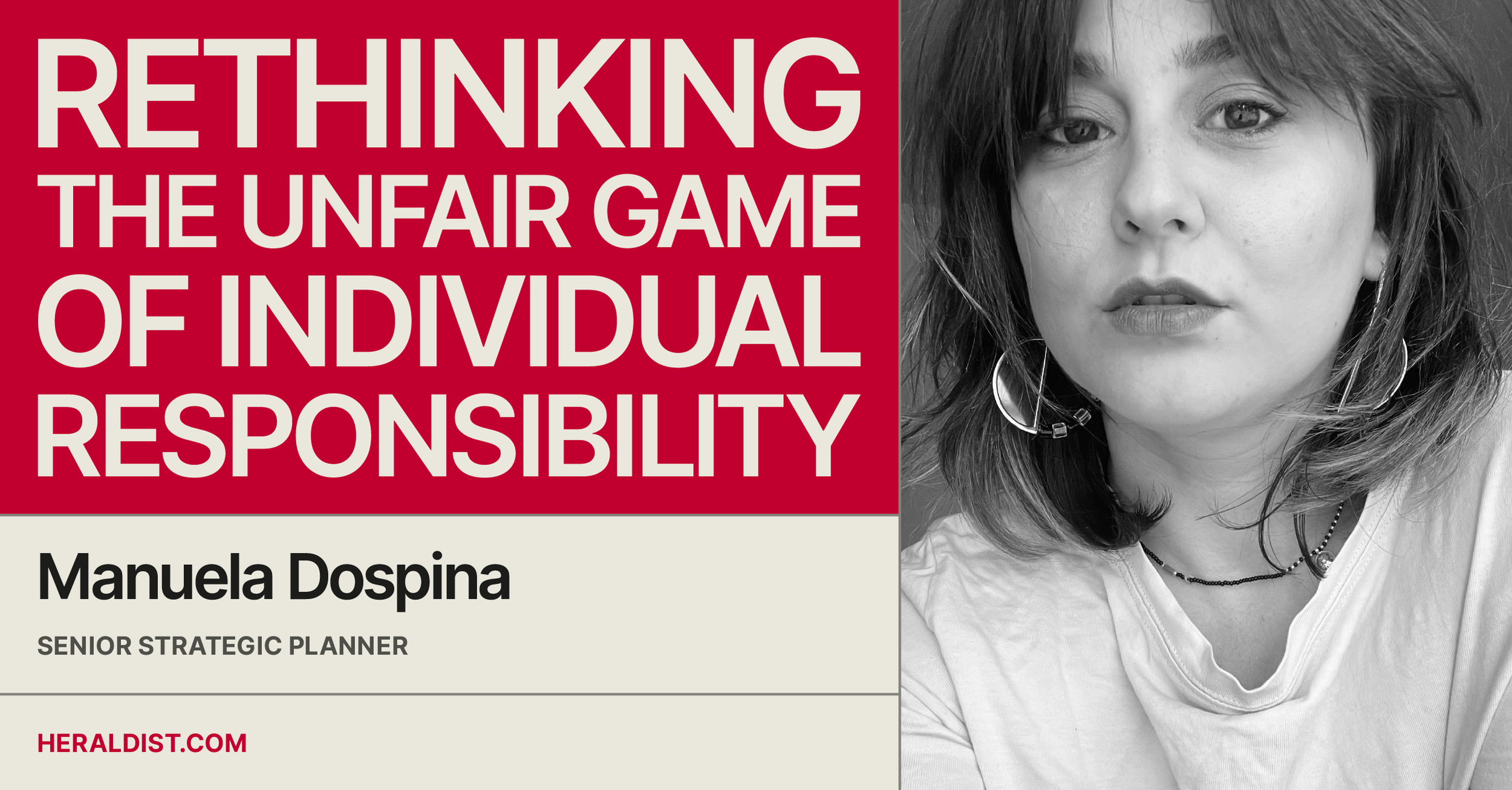Rethinking the Unfair Game of Individual Responsibility
In 2023, communities are scarce, and most people rely on nuclear families. If that support system is absent, there is still the capitalist overly sold dream of individualism, which has become a challenging burden to bear as people struggle with anxiety, grief, addiction, feelings of inadequacy, and the constant fear of missing out, all while trying to save the planet. So, let's examine 2 big industries that shift responsibility to consumers.
Self-care industry
Nowadays, the pursuit of one's true self is highly valued, but this quest for authenticity can sometimes overlook the needs of others. Practices like self-care and meditation have been commercialized and turned into performances, while the concept of self-love can inadvertently lead to self-indulgence and excessive individualism. Even within communities, certain spiritual practices discourage open and honest communication, favoring a "positive vibes only" mentality that prioritizes personal comfort over acknowledging the realities of others. Additionally, the concept of mindfulness implies that suffering originates solely from within, neglecting the influence of political and economic systems.
The sustainable industry
Sustainability is another glaring issue that puts much pressure on individual responsibility. Brands often place the burden of sustainability solely on individuals, deliberately ignoring the significant role of politics in this equation and the general hunger for profits. (just look at China)).
Although it is admirable to practice selective recycling and make eco-friendly choices, it is unjust to hold the average person accountable for the extensive environmental harm caused by corporations and states. The top 10% of the wealthiest individuals contribute to 63% of carbon emissions due to their international air travel and consumption habits. In comparison, the middle 40% of individuals account for 44% of carbon emissions, while the poorest 50% only contribute a mere 7%.
Every day, people are encouraged to recycle, drive electric cars, and use reusable products to protect the environment. Although these actions are crucial, it's important to understand that the average person is not to blame for significant environmental disasters. Focusing too much on environmental issues can also negatively impact mental health. While it's important to be eco-friendly, it's not always possible for everyone to make significant changes. People's free will is not enough if indeed it would exist at all, as long as there are so many factors (economic and societal factors at play) that intervene and leave people without much choice in the first place.
Many common themes in capitalism tend to oversimplify complicated problems and unfairly place the burden on individuals. On top of that, the blind spots are still present “in our market research and trend-fetichism, which is quite self-centering. From a place of privilege, brands fight to place themselves at the center of existing change”, as Matt Klein, Head of Global Foresight at Reddit, puts it.
To achieve a more fair and sustainable world, we must prioritize transparency and radical change.
One way to do this is by sourcing products locally, which gives organizations greater control over production. Additionally, we must work to bridge the gap between vulnerable and privileged individuals, being part of out-of-our-bubble communities by actively exploring how the world truly operates to affect progress.
By Manuela Dospina

